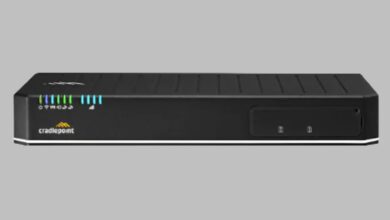Looking busy and being productive isn’t the same thing, and remote work makes it way too easy to mix the two up. Your team might be ticking boxes, replying fast, and sitting in back-to-back calls, but none of that means real progress is happening.
This article explores how false productivity sneaks into your team’s day and what you can actually do to steer everyone back toward work that matters. User activity monitoring software can offer the clarity you need to back up your decisions with real data.
Table of Contents
Busy Doesn’t Equal Productive
Remote and hybrid work gives your team freedom, but it also makes it way easier to confuse motion with real progress. When everyone’s behind a screen, it’s tempting to judge productivity by how busy someone looks instead of what they’re actually getting done.
Here are some signs that false productivity may already be affecting your team:
- Too Many Meetings, Too Little Output: Hours spent syncing leave little time for deep, focused work.
- Fast Replies Without Real Results: Team members feel pressure to stay responsive, even if it disrupts more important tasks.
- Task Obsession: Chasing checkmarks all day but never actually moving the big stuff forward.
- Lack of Clarity on What Success Looks Like: Without defined outcomes, it’s easy to confuse activity with progress.
Move from Appearances to Impact
To cut through the noise of false productivity, you need to target the habits and patterns that feed into it. Each common issue has a clear fix, but it takes the intention to shift your team’s focus back to meaningful progress.
Here’s how you can start making that shift:
Make Meetings Worth Showing Up For
Meetings shouldn’t be a default setting. Start by reviewing all recurring meetings on your team’s calendar. Cancel the ones that don’t have a clear purpose or could easily be replaced with a shared doc or async update.
If a meeting has to happen, make it count. Set a clear agenda, keep the invite list lean, and don’t let it drag on longer than it needs to. Get in, get what you need, and get back to real work. Push your remote team to carve out a few meeting-free hours each day so they actually have time to focus without constant interruptions.
Employee activity tracking software helps you see how much time is actually spent in meetings versus doing focused work. It gives you hard data to support cutting the clutter and protecting your team’s bandwidth, whether they’re remote, in the office, or splitting time between both.
Protect Time for Real Work
Instant replies can feel productive, but they’re usually just distractions in disguise. Help your team break the habit of constant responsiveness.
Set the expectation that deep work comes first and that it’s okay to go offline during focus time. Create a shared system for communication windows, such as clear times when team members are available for questions or check-ins.
A staff monitoring system helps you spot patterns of constant task-switching and nonstop messaging. With that visibility, you can coach your remote and hybrid teams to protect their time and build better work habits that lead to real progress.
Shift the Focus to Meaningful Work
Checking boxes feels productive, but that doesn’t mean the right work is getting done. Shift your team’s focus from volume to impact.
Start with clear goals, so everyone knows what actually matters right now. Encourage a quick pause before diving into each task to consider whether it supports key priorities. Use team check-ins to talk about real progress, not just how many things got finished. Celebrate meaningful outcomes over raw task count, and let go of work that doesn’t move anything forward.
With team monitoring tools, you see how time is being used across projects. It makes it easier to connect daily activity with outcomes that matter so you can guide your team toward more intentional work.
Define What Success Really Looks Like
Set clear expectations around what meaningful progress looks like. Break big goals into specific outcomes your team can aim for each day or week. Instead of tracking how busy someone is, focus on whether key results are getting closer. Reinforce these outcomes in one-on-ones and team check-ins so everyone stays aligned.
Employees who know exactly what they’re aiming for are 3.6 time s more engaged and less likely to get distracted by low-priority tasks.
A monitoring tool shows you how actual work stacks up against the goals you’ve set. You can quickly spot when time is going toward the wrong things and course-correct before productivity drifts.
Use Smart Tools to Stay Grounded
A solid monitoring tool takes the guesswork out of what’s getting done. Especially with remote or hybrid teams, it gives you a clear view of how time’s being spent, so you’re not stuck relying on status updates or gut feelings.
Here’s how it helps you keep things on track:
- Spot Where Time Really Goes: See which tools and websites are eating up hours and whether any of them help your team hit their goals.
- Figure Out the Flow: Some folks hit their stride in the morning, others after lunch. You’ll see when your team works best so you can plan smarter.
- Cut the Noise: Catch distractions, unhelpful habits, and wasted time before they become a pattern.
- Coach With Facts, Not Feelings: Instead of vague advice, use real data to help someone tweak how they work and get better results without working longer.
Conclusion
Focusing on clear goals, cutting back on distractions, and reinforcing real outcomes over appearances builds stronger momentum. A monitoring tool can back you up, giving you the insight to guide those shifts with confidence.
When you lead with clarity and purpose, true productivity follows.
https://www.keevee.com/goal-setting-statistics
Please explore our site for more exciting content if you like this article..





